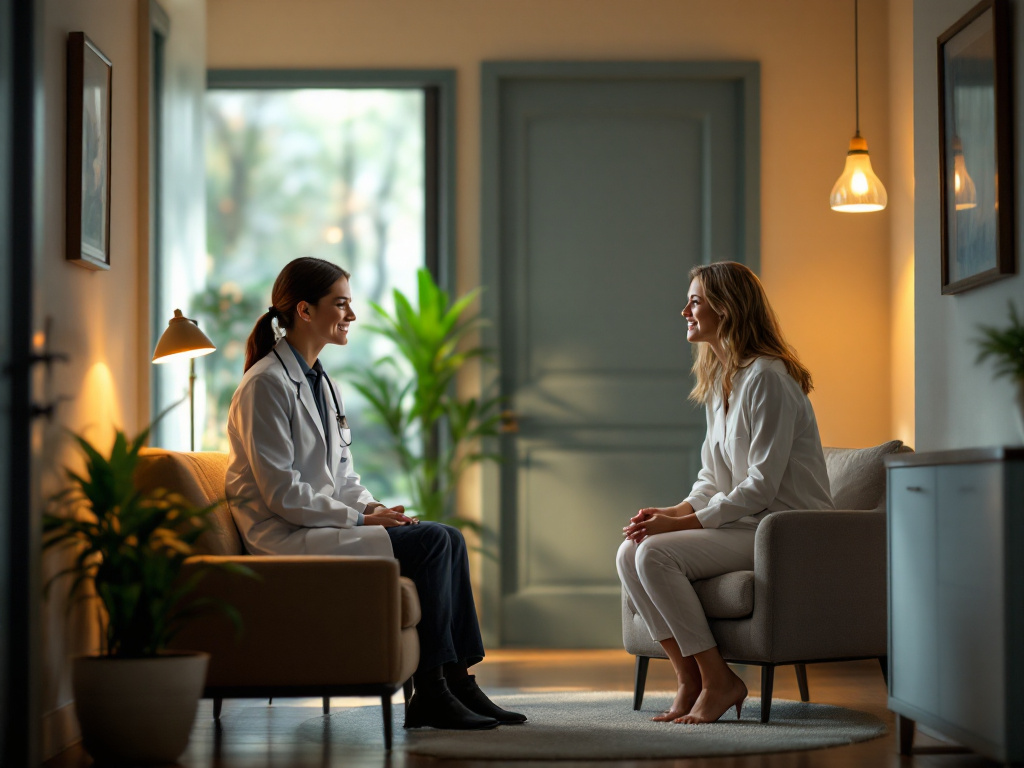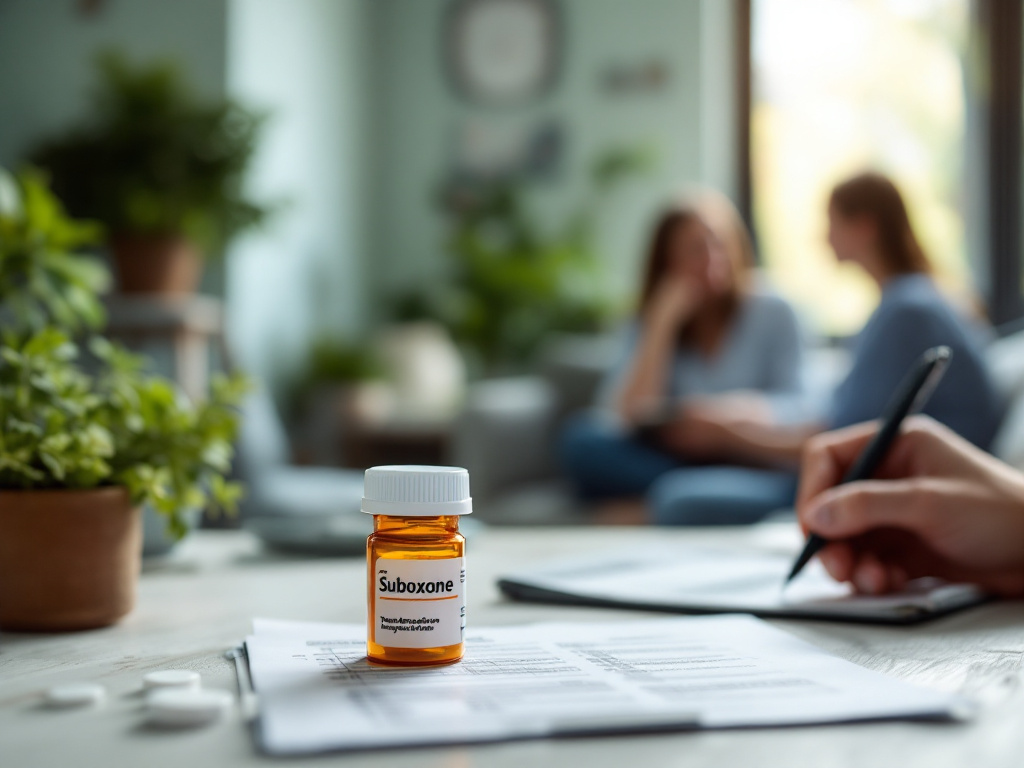Understanding private Suboxone care
If you’re exploring private suboxone recovery care, you’re likely looking for an outpatient program that balances medical oversight with personalised support. Medication-assisted recovery using buprenorphine (Suboxone) has become a trusted approach for managing opioid use disorder. By combining pharmacotherapy with counseling and behavioral interventions, you can address both physical dependence and underlying triggers in a supportive environment.
In private outpatient settings, you benefit from tailored treatment programs designed around your schedule, privacy needs, and clinical profile. In addition to flexibility, private clinics often offer immediate access to Suboxone, same-day telehealth appointments, and higher staff-to-client ratios—factors that can enhance your comfort and confidence as you begin the recovery process.
Assess program benefits
Individualised treatment plans
- Clinicians develop your buprenorphine treatment plan setup based on a comprehensive assessment of your medical history, substance-use patterns, and personal goals
- Ongoing dose adjustments ensure you maintain comfort during induction, stabilisation, and maintenance phases
- Integration of counseling, peer support, and complementary therapies creates a holistic care pathway
Privacy and comfortable settings
- Smaller group sizes allow for discreet appointments with a confidential outpatient Suboxone doctor
- Private facilities typically feature comfortable waiting areas and private counseling rooms
- Reduced paperwork and streamlined intake processes minimise exposure of personal details
Comprehensive support services
- Access to suboxone medication support therapy and group sessions to address behavioral health
- Virtual options, such as a virtual suboxone medication clinic, extend care beyond office visits
- Referral networks connect you to additional resources like housing support, vocational training, or legal aid as needed
Review core treatment elements
Medical evaluation and dosing
Before you begin Suboxone therapy, a qualified provider conducts a thorough medical assessment to confirm opioid dependence and identify co-occurring conditions. Your clinician will:
- Review your opioid use history and current medications
- Screen for liver function, pregnancy, and other health considerations
- Initiate buprenorphine induction in a monitored setting to minimise withdrawal risk
Adjustments continue throughout your treatment, ensuring optimal dosing. Many clinics follow a suboxone stabilization treatment program to guide you safely through this phase.
Counseling and behavioral therapy
Medication alone may not address underlying emotional and psychological factors. Integrating a suboxone and behavioral therapy program helps you:
- Develop coping strategies for stress, triggers, and cravings
- Explore family dynamics, trauma, or mental health issues in individual or group counseling
- Reinforce progress through motivational interviewing and relapse prevention workshops
These services can be delivered in person or via telehealth, supporting your recovery wherever you feel most comfortable.
Monitoring and outcome tracking
Regular follow-up visits allow your care team to monitor your progress, adjust treatment, and identify challenges early. Key components include:
- Urine drug screening and pill counts to ensure medication adherence
- Clinical assessments of withdrawal symptoms, mood, and overall well-being
- Coordination with primary care or mental health professionals for integrated care
Effective tracking promotes accountability and keeps you on course toward sustained recovery.
Integration of telehealth services
Telemedicine offers flexibility and rapid access to care. With a same day buprenorphine appointment, you can:
- Receive virtual inductions or follow-up consultations through secure video platforms
- Access counseling sessions and peer support groups online
- Coordinate prescription refills without in-person visits, minimising travel and scheduling conflicts
This blend of in-person and virtual care ensures continuity, even when life’s demands shift unexpectedly.
Navigate insurance coverage
Insurance plans for Suboxone
Most private insurance policies cover buprenorphine-based treatments, though coverage details vary. To navigate your plan:
- Verify benefits for buprenorphine therapy for opioid recovery with your insurer
- Understand co-pays, deductibles, and visit limits under suboxone therapy covered by Medicaid or private plans
- Check prior authorisation requirements and document any medical necessity to support your claim
An insurance verified Suboxone treatment provider can streamline this process, handling paperwork and appeals on your behalf.
Cost assistance and programs
If you face high out-of-pocket expenses, explore:
- Manufacturer copay assistance programs that can reduce your monthly cost by up to $75
- Discount cards available through patient assistance initiatives for eligible individuals without insurance
(Source: American Addiction Centers)
Weigh these options against cash-only Suboxone clinics, which may charge $250–$400 per month but often provide quicker access and fewer administrative hurdles.
Comparing cash-only clinics
Some cash-only Suboxone clinics operate outside traditional insurance frameworks, offering:
- Appointment availability within 48 hours
- Longer clinician visits without paperwork constraints
- Simplified billing with a fixed monthly fee
However, these clinics can raise concerns about continuity of care and oversight. Before choosing this route, evaluate their reputation, patient satisfaction, and clinical oversight (Source: South Hills Recovery Project).
Choose a qualified provider
Accreditation and compliance standards
While office-based opioid treatment does not require full OTP certification, providers must hold a DEA registration with Schedules II-V authority and complete required training under the MATE Act. According to SAMHSA, new or renewing practitioners need at least eight hours of education on opioid use disorders and pharmacological management [1]. Choosing a provider who adheres to these federal guidelines ensures you receive safe, evidence-based care.
Credentials and staff ratios
Private outpatient programs often boast higher staff-to-client ratios, allowing for:
- More one-on-one time with prescribers and therapists
- Rapid response to emergencies or emerging concerns
- Specialized care for co-occurring mental health disorders
This personalised attention can improve retention and outcomes compared to crowded public clinics [2].
Scheduling and telehealth options
Look for providers that offer:
- Same day buprenorphine appointment scheduling
- Virtual suboxone medication clinic sessions for follow-up and counseling
- Flexible evening or weekend hours to fit your work and family commitments
This level of access helps you maintain consistency, which is essential for long-term success.
Key questions to ask
When evaluating an outpatient MAT clinic, consider asking:
- What is your typical staff-to-client ratio?
- Can I schedule telehealth visits for follow-up care?
- How do you coordinate with behavioral health providers?
- What support do you offer for relapse prevention?
- How do you handle insurance verification and billing?
These questions help you assess whether the program aligns with your needs and preferences.
Prepare for outpatient treatment
Initial intake and stabilisation
During your first visit, expect:
- Comprehensive intake interview covering medical, psychiatric, and substance-use histories
- Physical exam and laboratory tests to confirm readiness for induction
- Suboxone induction under clinical supervision, following an outpatient suboxone prescription program
Your provider may refer you to additional services such as peer specialist support or group counseling early in treatment.
Maintenance and taper plans
Once stabilised, your provider works with you to define a suboxone taper and maintenance plan. Research shows that longer buprenorphine treatment—beyond 15 months—is linked to significant reductions in hospitalisations, emergency visits, and overdose risk among Medicaid enrollees [3]. Key elements include:
- Gradual dose adjustments based on your goals and clinical status
- Regular reviews to assess readiness for tapering or maintenance continuation
- Collaboration with a suboxone maintenance outpatient program to ensure smooth transitions
Tools for relapse prevention
A robust suboxone recovery management plan combines medication with ongoing support:
- Cognitive behavioral therapy and mutual-help meetings reinforce coping skills
- Digital monitoring apps track cravings, triggers, and appointments
- Family education sessions engage your loved ones in your recovery journey
By integrating these tools, you build resilience against setbacks and sustain long-term recovery.
Plan your recovery path
Setting realistic goals
Define clear, achievable milestones—such as staying opioid-free for one week, two weeks, and beyond—to measure your progress. Celebrate each success and adjust targets as needed to maintain motivation and momentum.
Building a support network
Connect with peers, sponsors, and recovery coaches through local or virtual suboxone groups. Sharing experiences and encouragement fosters accountability and helps you navigate challenges together.
Continuing care and follow-up
Recovery extends beyond medication. Regular check-ins with an outpatient addiction medicine provider, attendance at counseling sessions, and periodic reviews of your treatment plan ensure you receive comprehensive care. If you need to revisit your strategy, resources like an outpatient mat clinic accepting insurance or a buprenorphine addiction treatment services program are available.
Take proactive next steps
Now that you understand the landscape of private suboxone recovery care, reach out to an insurance verified Suboxone treatment specialist for a personalised consultation. With immediate access to same-day buprenorphine appointments and tailored support from Position Freedom Healthcare, you can embark on a path toward lasting recovery and renewed well-being.
References
- (SAMHSA)
- (Clearhaven Recovery)
- (NCBI)











